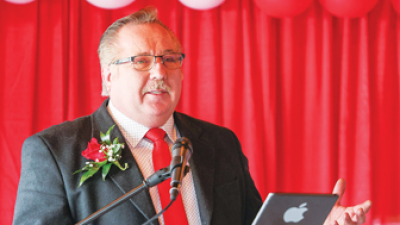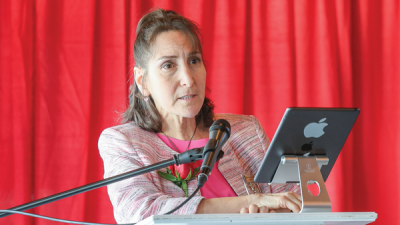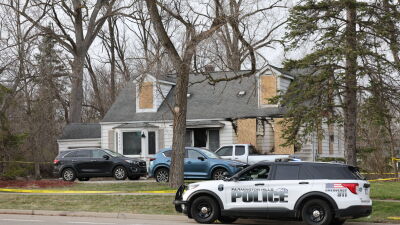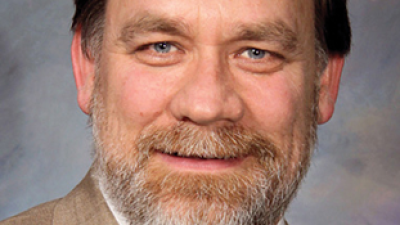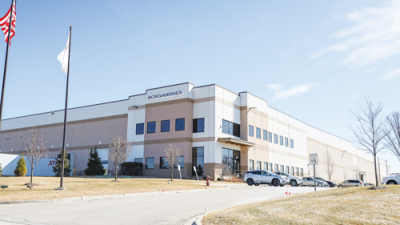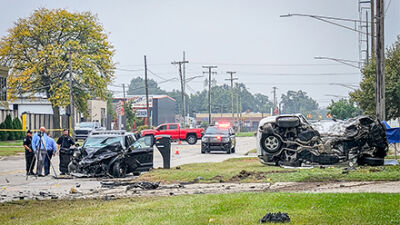MADISON HEIGHTS — Have an old phone you no longer need? It could save a life.
The General Federation of Women’s Clubs has asked its local chapters to participate in the Secure the Call initiative. The goal is to collect 5,000 or more phones and tablets through February 2023. The devices will then be repurposed for people in at-risk domestic situations who can use them in times of need.
Locally, the Madison Heights Women’s Club is collecting the phones and tablets at several drop-off sites, including the Madison Heights Public Library at 240 W. 13 Mile Road, through Dec. 12; the Madison Heights Active Adult Center, 29448 John R Road; Lamphere High School, 610 W. 13 Mile Road; the Madison District Public Schools Administration Building, 26550 John R Road; and Hollywood Market, 29200 N. Campbell Road. One can also mail their devices by visiting securethecall.org for a mailing slip.
Roslyn Yerman and Tammy Swanson are co-chairing the initiative for the Madison Heights Women’s Club. They said in an email that the larger GFWC asked their club to participate.
“It’s a cause I wanted to support,” Yerman said. “Madison Heights is a giving community, and the response from the community has already been tremendous, from rolling out the project and getting the word out, to the volume of donations received in just the first three weeks of the project.”
The program also aims to reduce the amount of electronic waste in landfills, the components of which contain toxic materials and can take thousands of years to degrade.
As for those in abuse situations, many find themselves isolated as the abuser tries to limit their access to phones. Public pay phones are dwindling in number, meaning cellphones are increasingly the only way to call for help.
By law, every cellphone sold in the U.S. must be capable of accessing 911 services, regardless of carrier status. That’s why Secure the Call is collecting unwanted phones and tablets, repackaging them with chargers and shipping them to agencies across the country, which redistribute them to those at high risk. It’s all done at no cost to recipients or the agencies helping them.
The program also takes steps to protect the private data of donors, shredding the SIM cards in the phones and resetting software to the original factory settings. If the private data cannot be erased for whatever reason, the phone will be recycled.
Organizers say that more than 1 million women are victims of physical assault each year, and just under a third of female homicide victims are killed by an intimate partner. Isolating the victim is a common tactic employed by abusers, which can include calling them to check in and demanding that they stay in place. Since the phones will have no carrier and can simply be switched on to call 911, they are easy for the victim to conceal, allowing them to discreetly call for help at a moment’s notice.
There are other groups that will benefit from the program, as well. One major group are those ages 75 and older, of which an estimated 72% do not have cellphones. Most seniors also live on fixed incomes with a median income less than $17,000 per year, making cellphones a luxury item that they may not be able to afford. The phones will be provided to them as a way to call for help in the event of fall injuries or other emergencies.
“I’ve always considered Madison Heights to be a little city with a huge heart,” Swanson said. “I knew with a little leg work, we would be able to ramp up and begin collecting donations quickly to meet the established goal date for the drive of February 2023.”
This isn’t the first time that the Madison Heights Women’s Club has helped victims of abuse. Past efforts included collecting items for Common Ground, which assists human trafficking survivors, and the Michigan State Police Women’s ERG project “Purses with a Purpose,” which aids victims of sexual assault through Haven and Turning Point.
The club has also collected items for Alternatives for Girls in Detroit — another group that helps survivors of human trafficking — and donated money to Michigan Women Forward, which aims to expedite the processing of rape kits.
In addition, the club has collected clothes and other items to support LGBTQ+ youth through the Ruth Ellis Center. It has also raised money for Pinwheels for Prevention of Child Abuse, in partnership with Madison Heights Youth Assistance.
The Madison Heights Women’s Club currently meets the third Monday of the month, with the exception of December — and January, in 2023 — at the Active Adult Center, 29448 John R Road. The group is open to all women, regardless of whether they live in Madison Heights. The group is also non-denominational and open to women of all faiths.
So far, the club has already collected more than 60 phones for Secure the Call.
“I saw it as an easy request,” Swanson said. “I, like most people, have older phones sitting in drawers that are no longer being used. I had no doubt that our community would jump on board and help us out — and they have!”
For more information about the program or the Madison Heights Women’s Club, including meeting dates and times, email gfwcmhwc@gmail.com.
 Publication select ▼
Publication select ▼







